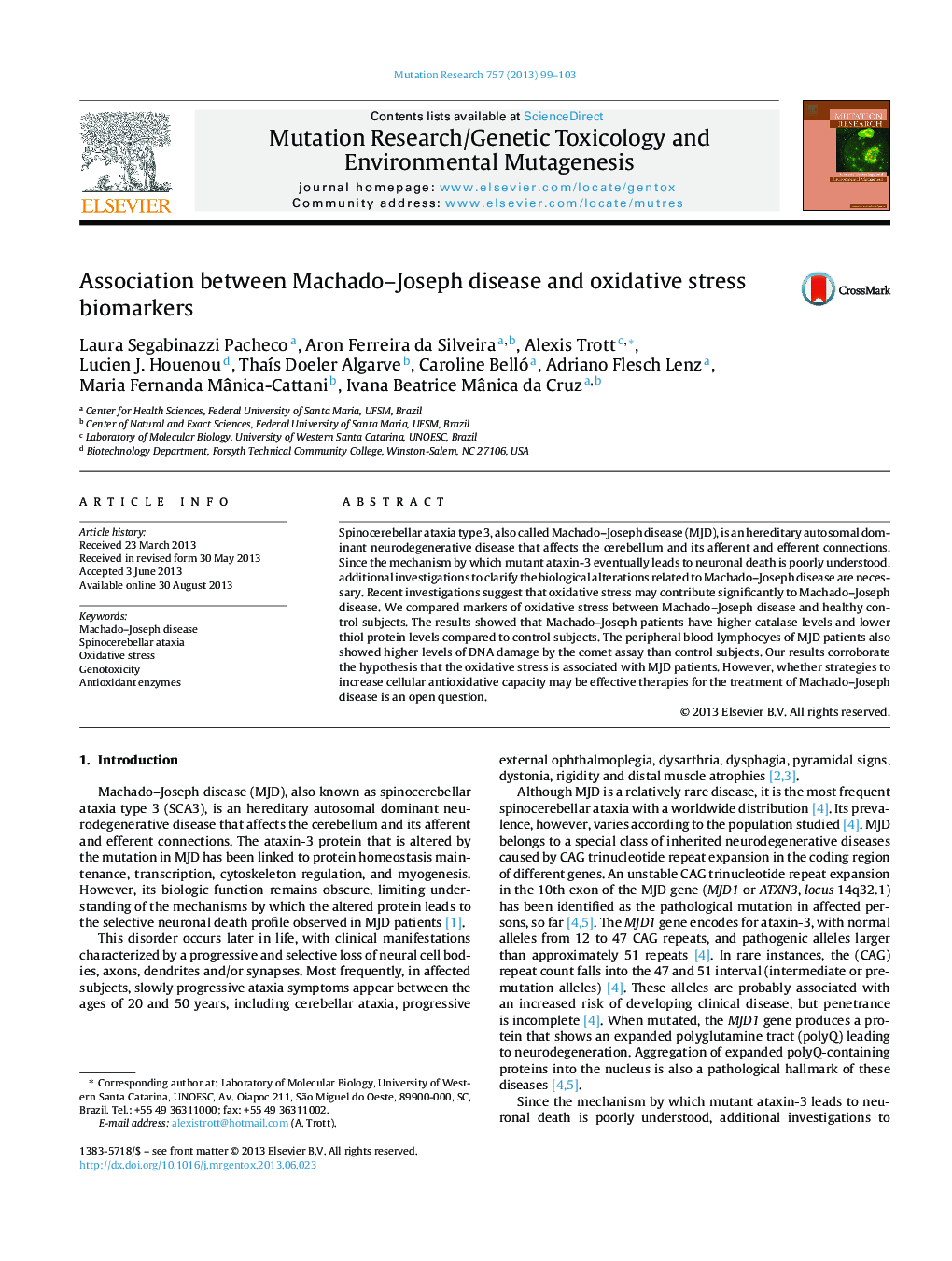| Article ID | Journal | Published Year | Pages | File Type |
|---|---|---|---|---|
| 10914938 | Mutation Research/Genetic Toxicology and Environmental Mutagenesis | 2013 | 5 Pages |
Abstract
Spinocerebellar ataxia type 3, also called Machado-Joseph disease (MJD), is an hereditary autosomal dominant neurodegenerative disease that affects the cerebellum and its afferent and efferent connections. Since the mechanism by which mutant ataxin-3 eventually leads to neuronal death is poorly understood, additional investigations to clarify the biological alterations related to Machado-Joseph disease are necessary. Recent investigations suggest that oxidative stress may contribute significantly to Machado-Joseph disease. We compared markers of oxidative stress between Machado-Joseph disease and healthy control subjects. The results showed that Machado-Joseph patients have higher catalase levels and lower thiol protein levels compared to control subjects. The peripheral blood lymphocyes of MJD patients also showed higher levels of DNA damage by the comet assay than control subjects. Our results corroborate the hypothesis that the oxidative stress is associated with MJD patients. However, whether strategies to increase cellular antioxidative capacity may be effective therapies for the treatment of Machado-Joseph disease is an open question.
Keywords
Related Topics
Life Sciences
Biochemistry, Genetics and Molecular Biology
Cancer Research
Authors
Laura Segabinazzi Pacheco, Aron Ferreira da Silveira, Alexis Trott, Lucien J. Houenou, ThaÃs Doeler Algarve, Caroline Belló, Adriano Flesch Lenz, Maria Fernanda Mânica-Cattani, Ivana Beatrice Mânica da Cruz,
